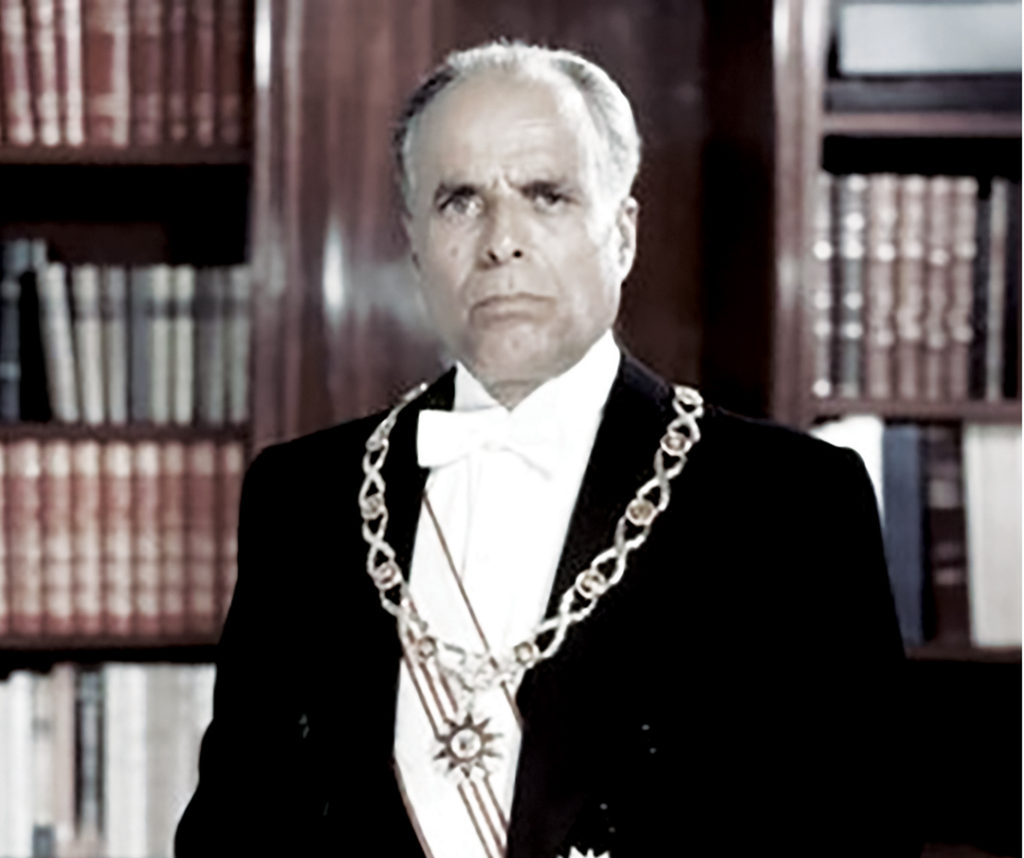ADF STAFF
Habib Bourguiba was Tunisia’s first president and remains a towering figure in the country’s history. But like so many great leaders throughout world history, Bourguiba’s desire to stay in office led to his downfall.
Wearing his trademark red fez, he was a flamboyant and shrewd politician who chose to outmaneuver his adversaries and critics, rather than bully them. He proved to be uniquely adapted to the Tunisian politics of his time.
Bourguiba was born in 1903, the son of a civil servant and the youngest of eight children. When he was a young adult, one of his brothers helped send him to France in 1924 to study law.
In France, he met his wife, acquired a taste for theater and French literature and a passion for politics. Returning to Tunisia, he founded the national Neo-Destour Party in 1934. As a vocal and conspicuous advocate of independence from France, he was frequently jailed and spent 12 years behind bars. Despite his mistreatment by the French, he always maintained that he admired them.
Tunisia became an independent country — Africa’s sixth at that time — in 1956. The governor, or Bey, of Tunis was the head of state; Bourguiba was the prime minister. A year later, Bourguiba became the country’s first president.
The “Supreme Fighter,” as he encouraged people to call him, initially was viewed domestically and internationally as a good leader. He vastly improved the country’s per-capita income. He was a champion of women’s rights, outlawing polygamy and allowing women to sue for divorce. He helped raise national literacy rates.
Beyond Tunisia’s borders, he was a voice of reason and temperance who was respected throughout the Muslim world. He advocated good relations with the West.
Over time, his presidency came to lack the subtlety that had defined his earlier career. He became more of a dictator than the leader of a democracy. He began to obsess about his legacy. He declared that his birthday, August 3, was a national holiday. Streets and institutions were renamed in his honor. In 1975, he was declared president for life.
By the mid-1980s, his economy was misfiring. There were riots over the availability and cost of food. Young Tunisians could not find jobs. The International Monetary Fund had to bail the country out of a financial crisis in 1986.
In 1987, Prime Minister Zine el-Abidine Ben Ali seized power, saying that the 84-year-old Bourguiba was senile. For the next 13 years until his death, he was held under house arrest, with restrictions on who could visit him. He died in 2000.
As Tunisia has emerged from the Arab Spring and seeks to set a path for peace and prosperity, there has been renewed interest in the country’s history, including the Bourguiba era. In 2016, a large statue of the former president riding a horse that had been removed in 1987 was returned to a central location in Tunis.
A spokesman for Tunisian President Beji Caid Essebsi said it was only right that the statue was returned to its “natural place,” Avenue Bourguiba, on the occasion of Tunisia’s 60th anniversary of independence.

